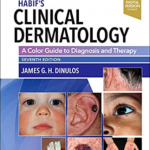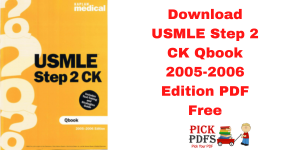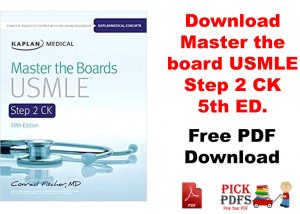Anatomy
- An Illustrated Guide to its Structure, Function, and Disorders 2nd Edition PDFThe Concise Human Body Book: An Illustrated Guide to its Structure, Function, and Disorders 2nd Edition PDF Free Download Discover all there is to know about human anatomy in DK’s …
- Biceps Brachii | Muscle Anatomy [Video]Biceps Brachii | Muscle Anatomy [Video] In this tutorial on the biceps brachii muscle we will cover its; origin, insertion, action, nerve supply, blood supply and a quick clinical correlation. …
- The Physiology of Human Perception (The Human Body) PDFThe Eye: The Physiology of Human Perception (The Human Body) PDF Free Download The scientific study of the eye is believed to have originated with the Greek physician Herophilus, who …
- A Learner-Friendly Approach pdfMaking Sense of Human Anatomy and Physiology: A Learner-Friendly Approach EPUB Free Download Designed to be user-friendly and informative for both students and teachers, this book provides a road map …
- Netter’s Atlas of Neuroscience 3rd Edition PDF downloadNetter’s Atlas of Neuroscience 3rd Edition PDF Free Download As in the first and second editions, Netter’s Atlas of Neuroscience, 3rd edition, combines the richness and beauty of Dr. Frank …
- 2D and 3D Images PDF downloadRhoton’s Atlas of Head, Neck, and Brain: 2D and 3D Images PDF Free Download Masterful 2D and 3D head, neck, and brain dissections provide unsurpassed insights into head, neck, and …
Usmle Step 1
- Download Habif’s Clinical Dermatology A Color Guide to Diagnosis and Therapy 7th Edition PDFIn this post we have shared an overview and download link of HABIF’S CLINICAL DERMATOLOGY A COLOR GUIDE TO DIAGNOSIS AND THERAPY 7TH EDITION PDF. Read the quick review below …
- Anatomy and Physiology – Salivary glands (video)Anatomy and Physiology – Salivary glands (video) We have three pairs of salivary glands bilaterally. Despite the parotid gland being large, the submandibular gland produces majority of the saliva 70% …
- An Illustrated Guide to its Structure, Function, and Disorders 2nd Edition PDFThe Concise Human Body Book: An Illustrated Guide to its Structure, Function, and Disorders 2nd Edition PDF Free Download Discover all there is to know about human anatomy in DK’s …
- Biceps Brachii | Muscle Anatomy [Video]Biceps Brachii | Muscle Anatomy [Video] In this tutorial on the biceps brachii muscle we will cover its; origin, insertion, action, nerve supply, blood supply and a quick clinical correlation. …
- Acute Tonsillitis – causes (viral, bacterial), pathophysiology, treatment, tonsillectomy [Video]Acute Tonsillitis – causes (viral, bacterial), pathophysiology, treatment, tonsillectomy [Video] “The tonsils are part of what is called Waldeyer’s ring. Generally when talking about tonsils we are talking about the …
- causes, symptoms, diagnosis, treatment, pathology [Video]Syphilis – causes, symptoms, diagnosis, treatment, pathology [Video] What is Syphilis? Syphilis is a sexually transmitted disease that affects the skin and mucous membrane of the external genitalia, and also …
Categories
- ABC series (14)
- AMC (6)
- Anatomy (130)
- Anesthesiology (17)
- bio chemistry (25)
- Bio technology (5)
- BRS (3)
- Cardiac (12)
- Cardiology (83)
- career guides (44)
- clinical medicine (74)
- computer science (12)
- Dental (24)
- Dermatology (48)
- Emergency medicine (27)
- engineering (6)
- EnT (1)
- Family Medicine (21)
- Featured (14)
- First Aid (15)
- Forensic Medicine (8)
- Free medical books (130)
- Gynecology (82)
- ILETS (4)
- Immunology (19)
- internal medicine (40)
- Kaplan medical (14)
- medical (72)
- oxford handbook (8)
- Microbiology (47)
- MRCP (7)
- Neuroanatomy (23)
- Neurology (48)
- news (113)
- Nursing (14)
- ophthalmologists (1)
- Orthopedics (8)
- Otolaryngology (2)
- pathology (60)
- Pediatrics (35)
- pharmacology (42)
- physiology (56)
- plab (10)
- Radiology (27)
- Rheumatology (19)
- Sports Medicine (5)
- surgery (85)
- USMLE (51)
- USMLE STEP 3 (4)
- USMLE STEP 1 (28)
- USMLE STEP 2 (10)
Anatomy
Free medical books
surgery
Gynecology
Cardiology
medical
clinical medicine
pathology
physiology
USMLE
Dermatology
news
Usmle Step 2
- Download USMLE Step 2 CK Qbook 2005-2006 Edition PDF [Direct Link]Comprehensive, focused practice from Kaplan, the test prep experts, that will help you score higher on Step 2 CK of the USMLE! The USMLE is one of the most important …
- Download Master The Boards USMLE Step 2 CK 3rd Edition PDF [Direct Link]Master the Boards: Step 2 CK may be a complete book for your preparation for USMLE Step 2 CK. you are doing not got to use other books. As a …
- USMLE Step 2 CK Lecture Notes 2019: Internal Medicine PDF Download [Direct Link]In this article, we are sharing with our audience the genuine PDF download of USMLE Step 2 CK Lecture Notes 2019: Internal Medicine PDF using direct links which can be …
- Master the Boards USMLE Step 2 CK 5th Edition PDF Download [Direct Link]In this article, we are sharing with our audience the genuine PDF download of Master the Boards USMLE Step 2 CK 5th Edition PDF using direct links which can be …
- USMLE Step 2 CS Lecture Notes 2019: Patient Cases + Proven Strategies PDF Download [Direct Link]In this article, we are sharing with our audience the genuine PDF download of USMLE Step 2 CS Lecture Notes 2019 PDF using direct links which can be found at …
- USMLE Step 2 CK Qbook 4th Edition EPUB PDF DownloadDisclaimer This site complies with DMCA Digital Copyright Laws. Please bear in mind that we do not own copyrights to this book/software. We’re sharing this with our audience ONLY for …

















